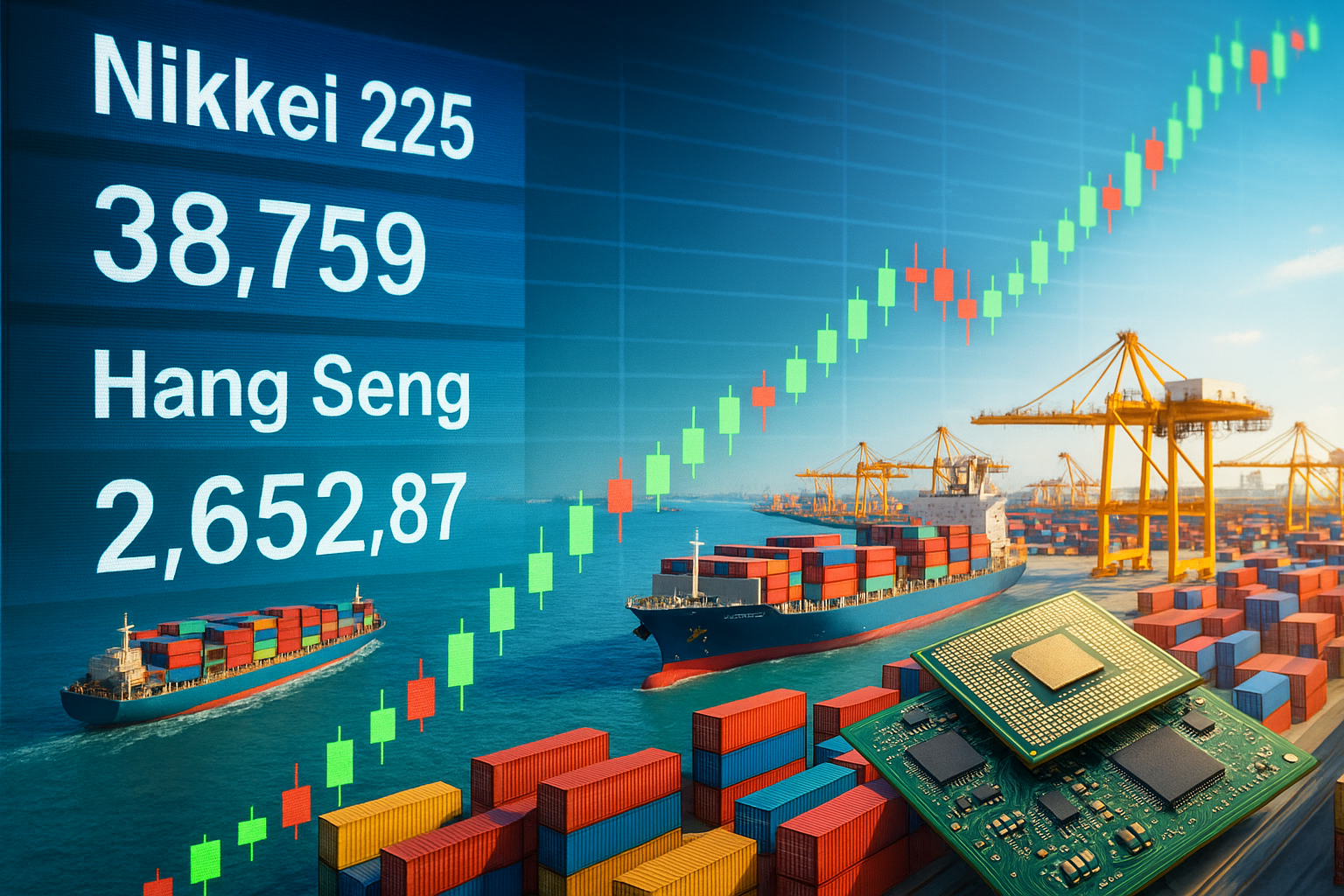
Asian stock markets surged on renewed investor optimism that the United States is actively pursuing expanded trade agreements with key partners across the Asia-Pacific region. The potential for broader trade cooperation has reignited appetite for equities tied to global supply chains, lifting indices across Tokyo, Seoul, Taipei, Shanghai, and Hong Kong.
Market Rally Driven by Trade Hopes
The Nikkei 225 in Japan climbed over 1.8% in Thursday’s session, extending its month-to-date gains as investors factored in a more favorable outlook for Japanese exports. In South Korea, the KOSPI index rose 1.5%, supported by strong buying in semiconductor and battery stocks. Taiwan's TAIEX added nearly 2.2%, led by a sharp rally in heavyweight Taiwan Semiconductor Manufacturing Company (NASDAQ:TSM), a key chipmaker deeply integrated into U.S. and global tech supply chains.
The Hang Seng Index in Hong Kong advanced by 1.9%, with notable gains in logistics, shipping, and tech conglomerates. Meanwhile, Shanghai's Composite Index closed up 1.4%, as Chinese investors speculated that Beijing may also seek to align with new multilateral frameworks that could emerge from U.S.-led trade diplomacy.
Context: Strategic Shifts in U.S. Trade Policy
Behind the market optimism is a growing expectation that the U.S. may pursue a mix of bilateral and regional agreements to counterbalance geopolitical tensions and reinforce economic ties with Indo-Pacific nations. This follows previous efforts such as the Indo-Pacific Economic Framework (IPEF) and discussions among Quad members.
Although full-scale free trade agreements remain politically contentious in Washington, businesses and investors alike are focusing on pragmatic deals aimed at digital trade, supply chain security, semiconductor collaboration, and critical minerals cooperation.
The expectation is that such agreements—though narrower in scope—could provide meaningful tailwinds to Asia-based exporters, particularly in technology, electronics, EV components, and rare earths.
Sector Highlights
Semiconductors: The tech-heavy rally was most pronounced in the semiconductor space. Taiwan’s TSMC (NASDAQ:TSM) surged over 3% during the session, as investors priced in expectations that demand for advanced chips from U.S. customers would remain robust under a cooperative trade regime.
Battery and EV Supply Chain: In Seoul, shares of LG Energy Solution and SK Innovation rallied on optimism that battery exports to U.S. automakers would benefit from streamlined customs procedures and clearer trade rules around sourcing and manufacturing.
Logistics and Shipping: Hong Kong-listed shipping companies such as COSCO Shipping and logistics providers like Kerry Logistics jumped on hopes that greater trade volumes and tariff clarity would drive up freight demand.
Technology and Manufacturing: In Japan, companies like Sony (TYO:6758) and Panasonic (TYO:6752) saw solid gains as investors anticipated stronger order flows tied to smoother cross-border trade in consumer electronics and components.
Currency and Commodity Movements
The Japanese yen stabilized near 154 per dollar, while the South Korean won strengthened slightly against the greenback, further reinforcing capital inflows into equities. Commodity markets also reacted positively, with copper and nickel prices rising—commodities central to electronics and battery production.
Broader Implications for Global Markets
Wall Street futures pointed higher, signaling that the bullish sentiment may spill over into U.S. trading hours. Analysts noted that while nothing has been officially signed, even the prospect of a shift in trade tone is enough to ignite short-term rallies in globally integrated markets.
In a world where inflationary risks, geopolitical tensions, and supply chain disruptions have rattled investor confidence, news of proactive trade diplomacy—even incremental—provides a welcome catalyst.
Looking Ahead
Investors will watch closely for any official announcements from U.S. trade officials or further diplomatic developments during upcoming summits with regional leaders. Should negotiations lead to binding agreements on sectors like semiconductors or rare earths, Asian markets could see even greater upside in the quarters ahead.
For now, the rally reflects a cautious but growing optimism that the U.S. is preparing to reassert its economic leadership in Asia, offering new opportunities for trade-reliant companies and export-heavy economies across the region.
Disclaimer: This article is for informational purposes only and does not constitute investment advice, solicitation, or an offer to buy or sell any securities. Always conduct your own due diligence before making any investment decisions.
